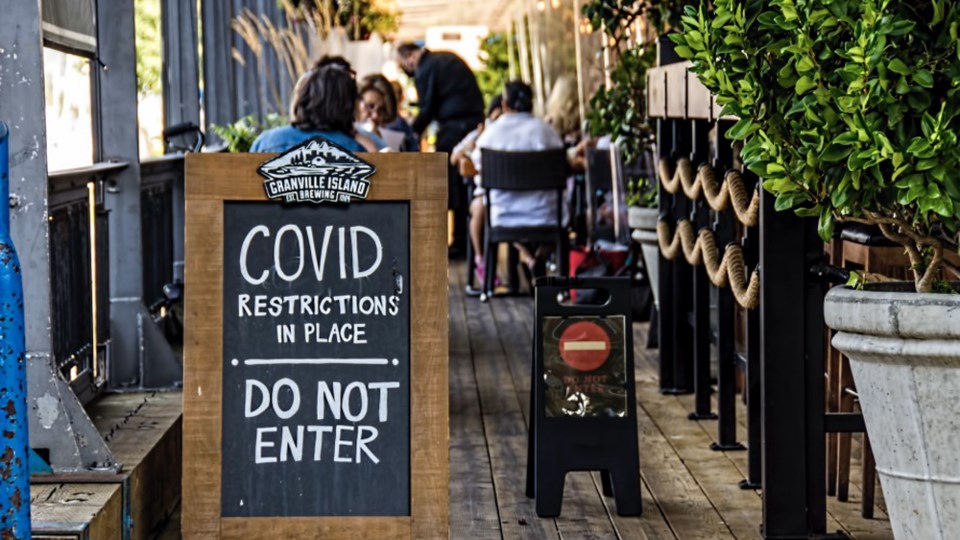As outstanding COVID-19 restrictions and mandates are lifted across Canada, residents of the country are starting to get ready for activities that they pursued only sparingly over the past two years.
The feeling is decidedly different from the one we had before the Christmas holidays, when the Omicron variant forced many to rethink their plans. , we reported on the fact that 72% of Canadians felt that the worst of the COVID-19 pandemic was now “behind us.”
Last weekend, Research Co. and Glacier Media asked Canadians about their level of apprehension, as well as their plans for the next couple of weeks. More than half of Canadians (52%) say they are “very anxious” or “moderately anxious” about COVID-19 restrictions and mandates being lifted in their community, while a slightly lower proportion (46%) are “not too anxious” or “not anxious at all” about this development.
Anxiety about life without restrictions and mandates is higher among women (56%) than men (49%). The numbers are fairly stable across generations: 54% among Canadians aged 18 to 34, 51% among Canadians aged 35 to 54 and 53% among Canadians aged 55 and over.
On a regional basis, the outlier is Saskatchewan and Manitoba, where 61% of residents are anxious about the end of COVID-19 restrictions. The numbers are stable across all other provinces: 53% in British Columbia, 52% in Alberta, Ontario and Atlantic Canada, and 50% in Quebec.
, we learned that 59% of Canadians opposed the protests and blockades against restrictions and mandates related to the COVID-19 pandemic, while 35% supported them and 6% were undecided.
The views of Canadians on the effectiveness of the so-called “freedom convoy” are more nuanced a month later. Across Canada, 44% of residents feel the protests and blockades are responsible “a great deal” or “a fair amount” for the end of restrictions and mandates in their community, while 46% think the loose group bears little or no responsibility.
Canadians aged 18 to 34 are more likely to credit the protests and blockades for the new set of COVID-19 guidelines in their community (59%) than their counterparts aged 35 to 54 (46%) and aged 55 and over (31%). In Alberta, a majority of residents (52%) think the so-called “freedom convoy” succeeded in lifting the restrictions and mandates. The proportion is lower in Ontario (47%), Saskatchewan and Manitoba (also 47%), British Columbia (43%), Quebec (42%) and Atlantic Canada (36%).
The absence of restrictions and mandates may entice some Canadians to do things differently, but not everyone is on board with the notion that face coverings can be summarily abandoned. Practically two-thirds of Canadians (65%) plan to wear a mask when entering an indoor premise in the next couple of weeks. On this issue, Ontarians are at the top of the list (69%) and British Columbians at the bottom (59%).
There is, however, a significant change on a different indicator. Last week, we found that 68% of Canadians were still wearing a mask every time they went out. Now, only 45% say they will continue to do so in the next fortnight. While a majority of Atlantic Canadians (51%) will still continue to observe this precaution, the numbers drop to 49% in Ontario, 46% in Saskatchewan and Manitoba, 43% in Quebec, 39% in Alberta and 38% in British Columbia.
For just over a year, sizable majorities of Canadians endorsed the concept of the “vaccine passport” for specific events. There is some appetite from Canadians to return to some of these activities in the next couple of weeks. One in four (21%) are ready to visit the theatre or cinema, and smaller proportions would go to a live sporting event (11%) or a concert (9%) as spectators. As expected, Canadians aged 18 to 34 are more enthusiastic, with 31% planning to see a movie or play in the next two weeks.
The restaurant industry, which has been hit hard by the pandemic, can also look forward to welcoming more customers. About two in five Canadians plan to visit a sit-down restaurant for lunch (39%) or dinner (43%) in the next two weeks. British Columbians are particularly eager to enjoy food away from home, with 49% scheduling a dinner and 48% booking a lunch.
Still, the most important activity for Canadians is visiting relatives or friends in person. Practically three in five Canadians (58%) plan to do this in the next two weeks, a proportion that rises to 63% among those aged 55 and over.
While Canadians feel that the COVID-19 pandemic has thrown its worst curveballs, a significant level of anxiety about the immediate future persists. Fewer than half plan to continue wearing a mask every time they go out, and some are ready for the activities that used to be normal in 2019. The economic recovery for specific sectors will depend on how accommodating the venues are for those who, while ready to say goodbye to the pandemic, are proceeding with caution.
Mario Canseco is president of Research Co.
Results are based on an online study conducted from March 18 to March 20, 2022, among 1,000 adults in Canada. The data has been statistically weighted according to Canadian census figures for age, gender and region. The margin of error, which measures sample variability, is plus or minus 3.1 percentage points, 19 times out of 20.





